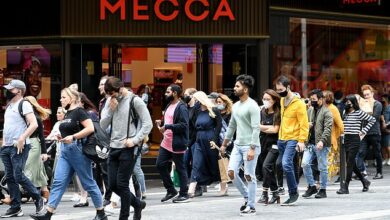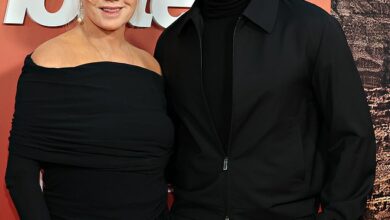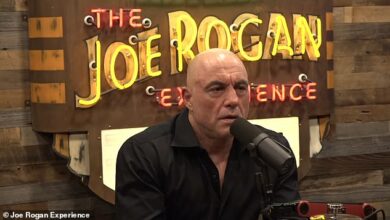Matt Barrie exposes everything that is wrong with Australia

A successful Australian entrepreneur has laid bare why the nation should have one of the strongest economies in the world with cheap housing for all its residents.
Matt Barrie, the CEO of outsourcing marketplace Freelancer, told the latest episode of the EquityMates podcast that: ‘You would think a country with 1200 years of coal supply would be an energy superpower.
‘You would think a country with 28 per cent of the world’s uranium reserves would be an energy superpower. You would think a country with 20 per cent of the world’s gas exports would be an energy superpower,” the Stanford graduate said.
Mr Barrie said that with only 3.46 people per square kilometer, Australia should have cheap land and cheap housing for all its residents and yet is in the midst of a housing crisis.
‘You would think a country with 47 per cent of the world’s lithium production, [that] is sixth in the world for production of copper, fifth in the world for production of nickel – you’d think it would be an electronic and engineering superpower.’
He pointed out that with 56 per cent of the world’s iron ore exports, Australia should make its own steel and export it across the globe.
‘We should be the richest country in the world, full stop.’

Freelancer CEO Matt Barrie said Australia ‘should be the richest country in the world’ because of our vast mining resources
But Mr Barrie said the Australia was experiencing the exact opposite.
‘Instead we have the greatest erosion of wealth in the developed world, a cost of living crisis, we have house pricing that is astronomically expensive, it does not make any sense.
‘The root cause of the cost of living crisis is the cost of land and the cause of this is immigration, we have the most expensive casual wages in the world, but again it’s not enough to live on because people need somewhere to live.
‘We also have an energy crisis. We stupidly are going down that path of ‘well what about the environment, we can’t burn coal.
‘No, we are burning the coal, every single thing we are digging out of the ground is being burned, it’s just being burned by China or Japan.
‘The gas we send overseas is in many cases being reexported. We send it to Japan and they sell it.’

Around 80 per cent of the natural gas produced in Australia is liquefied for expert to Asian countries (pictured Origin Energy’s Australia Pacific liquefied natural gas facility at Curtis Island in north Queensland)

Australians paid record high prices for gas in 2022 despite having an abundant supply of the resource. Prices have fallen slightly over the previous two years (stock image)
He claimed as a result of these issues – high housing costs, high wages and high energy prices – Australia can’t run a manufacturing industry.
‘Our economy in terms of sophistication and complexity is on par with Equatorial Guinea, where they don’t have a cinema in the entire country,’ he said.
Barrie claimed the fix was simple.
‘I believe immigration needs to be cut by 90 per cent, the skilled migration program is not skilled.
‘You need every person in this country to be able to afford a house over their head to live. To not be a renter or stuck in a mortgage on a treadmill.’
He also suggested international students should pay an ‘infrastructure fee’ of $50,000 before they are granted entry to the country.
‘We have to get manufacturing running again in this country. To do that you’ve got to fix the energy problem. We’ve got to make nuclear legal.’

Coal fired power plants in Australia are gradually being replaced by renewable power

Demand for iron ore from China is expected to decline in the next few years which will affect Australia’s economy (the Mount Holland mine in Southern Cross, Western Australia)
He said many politicians only added to the problems Australia was facing.
‘Politicians don’t really know how to grow the economy and really grow industry or do anything other than dig up raw materials out of the ground to ship overseas,’ he said.
‘Both the Liberal and Labor party have been running a program that has been focused on easy, relentless growth.
‘So, as long as house prices gently drift up and as long as wages are gently suppressed, businesses are happy and the citizens are happy.
‘That’s been running for some time but that’s only facilitated by running a very large immigration program.
‘So, we are bringing people into the country, which suppresses wages, and then those people need housing. And so you just gently drift houses up while you gently suppress wages.
‘When Albanese came in, he put it into full burko mode, where they ramped immigration up to [bringing in the equivalent of] aCanberra and Darwin per year.
‘How could we possibly build a Canberra and a Darwin per year? It’s not just housing you have to build. You have to build the infrastructure; you have to build hospitals and schools, roads and transport.
‘It’s the state governments who pick up the bill for that, and they’ve been on a massive building spree. It is basically driving the states to the point of bankruptcy.’




